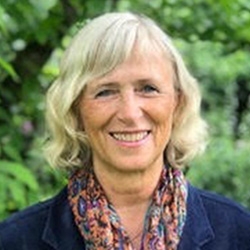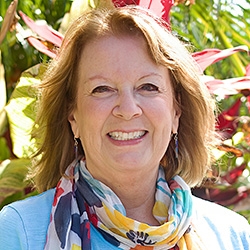
Search Results: partnership
-
How can we create a partnership and eye-level dialog with people who we perceive to have more power? In this session, we will create a practice of humanizing ourselves and others through empathy, practicing scary honesty, and making requests that serve both persons’ needs
-
-
-
As parents, we often face challenging situations on a daily basis and struggle to create what we most long for. In this 6 session telecourse recording, you will learn how Nonviolent Communication can support a family culture where cooperation, trust, and peace are nurtured, and children and parents can flourish together.
-
Inbal clarifies the difference between needs and strategies, and why the distinction is important in our parenting role. She offers two questions to ask yourself if you're not certain whether something is a need or strategy.
-
What do you experience when you give up on needs that are important to you, and are coerced into doing something you didn’t want to do? And why is it hard to make requests? Listen in and learn more.
-
Could our "need for autonomy" be getting in the way of "partnership consciousness" (as NVC is sometimes called). Could "autonomy" also block healthy relationships with not only ourselves and with others, but also with the planet? This article invites us to consider how "autonomy" may colour our NVC practice at the peril of our critical values. Values such as our care for impact, shared responsibility, interdependence, compassion, consideration, and more...
-
This is the first in a series of tips on applying NVC to daily life. In this episode, Shantigarbha offers five tips for improving communication in relationships.
-
What could be, more often than not, overlooked when we think about or represent NVC or Marshall Rosenberg's work? This article busts some commonly held ideas and approaches to NVC. It challenges us to widen the lens of what it really means to be "life-serving", or speaking and hearing the "language of life". And it also speaks to how thinking can deepen feeling and relatedness...
-
NVC practice is based on several key assumptions and intentions. When we live based on these assumptions and intentions, self-connection and connection with others become increasingly possible and easy, helping us contribute to a world where everyone’s needs are attended to peacefully.
-
When we are transparent about our concerns, brainstorm solutions together, and look towards making a decision with the other person, we can increase understanding, partnership, and mutual support. This invites people to work on the same issue from the same direction, collaboratively seek solutions, and tap a deeper wisdom. In the end, the future survival of our species depends on this kind of active interdependence.
-
Ask the Trainer: My question is about wanting to empathize more with my husband. Sometimes we connect very deeply, other times he slips back into "jackal talk..."
-
Ask the Trainer: For many years I have been using crime and punishment (reward and consequences) to discipline because it was the only thing I knew. I knew deep in my heart it was alienating me...
-
Using his own life experience, Eric explores why we need support from others, what support might look like, and what blocks us from asking for support for our relationships.
-
Join CNVC Certified Trainer Arnina Kashtan as explores interdependence, autonomy, valuing self and others, and power-sharing in your relationships. Free yourself to honor your longing for community, belonging, and love.
-
Trainer Tip: When there is conflict, the chances are good that people are arguing over a particular strategy. When we focus on our needs, the opportunities for peaceful resolution that values everyone’s needs are much greater. This can also build trust. Be aware of opportunities to shift focus from strategies to needs. Read on for an example of how this can work.
-
Ask the Trainer: Can all needs be met when illness limits the capacity of one person to meet the needs of her partner?
-
Ask the Trainer: Is it a good idea to use NVC on persistent guilt, anger or depression without the aid of others?
-
CNVC Certified Trainer Arnina Kashtan talks about what she calls "witnessing humanity," touching on the gift of presence, empathy vs. identification and staying present in the face of intensity.
-
In this, the second in a series on applying NVC to daily life, Shantigarbha offers five tips for recognizing where communication is likely to go awry.



















